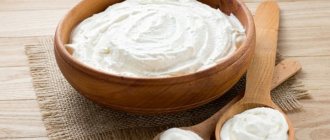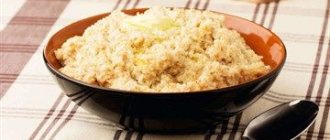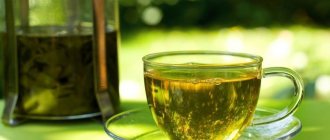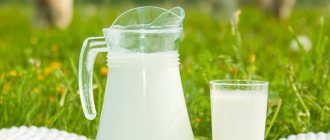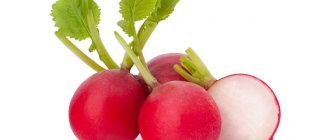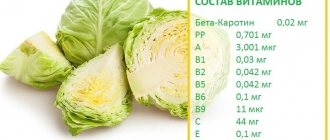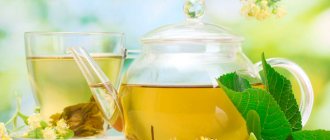Melissa has always been considered a feminine herb, because it restores hormonal levels, calms and normalizes sleep, and has a positive effect on the production of breast milk. Therefore, it is not only possible, but also necessary for a nursing mother to consume lemon balm.
Studies have proven that lemon balm during breastfeeding is not dangerous for lactation and breastfeeding. But despite the safety of the herb, the product should be used with caution. In this article we will look at the beneficial properties of the plant. Let's find out how to properly brew and drink tea with lemon balm for a nursing mother.
Is it possible to drink lemon balm tea while breastfeeding?
This question is often asked by young mothers who are faced with the difficulties of breastfeeding and caring for their baby for the first time. If doctors recommend removing regular strong tea and coffee, which contain caffeine, which excites the nervous system, from the diet, then herbal tea with lemon balm, on the contrary, is recommended to be added to it.
Lemon balm is characterized by a rich chemical composition. It is a source of many vitamins, macro- and microelements, which makes it an indispensable assistant for a nursing mother.
The main advantage of lemon balm is its ability to have a calming effect not only on the psyche, but also on the entire body.
Restrictions and contraindications
At first glance, this seemingly harmless plant also has a list of contraindications for uncontrolled use during lactation. Melissa can cause a bad reaction in women and children in the following cases:
- Individual intolerance.
- Chronic hypotension.
- Impaired kidney function (due to the diuretic effect of the plant).
Mothers need to stay alert to keep an eye on their baby. Lemon balm can inhibit reactions and dull attention, so it is better not to overuse the herb.
Melissa in moderation is useful during lactation. It relaxes the nerves and body of the nursing mother, thanks to which the flow of milk comes more freely. Judging by the reviews, this essential oil plant with a pleasant odor does not have a pronounced lactic effect.
The effect of lemon balm on the body of a nursing mother
Many nursing mothers, for fear of harming the baby by drinking coffee or tea, begin to replace them with herbal infusions or teas during the feeding period.
Most often, mint tea is chosen because it is credited with not only a calming effect, but also enhancing lactation. Unfortunately, this is all a myth.
- Firstly, mint has a tonic effect on the mother’s body, not a calming one.
- Secondly, mint is usually used at the end of the breastfeeding period to suppress lactation. In this case, it is brewed in combination with sage.
- Thirdly, mint is a strong allergen and can cause a rash in the baby.
Melissa has a completely different effect on the body of a nursing mother. It is not for nothing that it is called a natural antidepressant.
Contraindications
The use of lemon balm during pregnancy and lactation is not prohibited by doctors. Not a single expert speaks out against lemon balm. But at the same time, you should not abuse this product: medicinal herbs also have contraindications. The medicinal properties and contraindications of lemon balm also apply to women who are breastfeeding.
Tea with lemon balm during breastfeeding (BF) is recommended to improve milk production. This effect is achieved by accelerating metabolism and stabilizing a woman’s hormonal levels. Many people note the truly wonderful effect of the plant on the lactation process. If you brew just one cup of lemon balm tea, your milk supply will noticeably increase, and this will extend the duration of breastfeeding.
Drinks made from cat grass are soothing, which also helps normalize baby's sleep. For this purpose, lemon balm can be used in cooking in main dishes, soups, and desserts. In addition, the beekeeper improves the functioning of the child’s gastrointestinal tract.
The bee plant is used to make delicious teas and tinctures. Melissa for pregnant women in this form is ideal for use during this time. You can drink a drink based on this plant or black tea with lemon balm and mint.
Read more about the lemon balm tea dietary supplement:
In accordance with the instructions for the dietary supplement, lemon balm tea is contraindicated for use during breastfeeding.
Solution: Melissa Herb for Tea Harvesting for the Winter - description and main characteristics
In the event of pregnancy, absence of menstruation, or suspicion of possible pregnancy, the patient should inform her doctor.
Beneficial properties of lemon balm for nursing
Melissa has a very gentle effect, having a beneficial effect on the overall well-being and quality of milk. Drinking lemon balm tea is beneficial because:
- Relieves fluid stagnation, stimulates milk production and metabolism.
- Improves blood composition, reduces the risk of cholesterol plaques, removes heavy metals and toxins.
- Normalizes the functioning of the gastrointestinal tract and stabilizes the functions of the digestive tract.
- It has a beneficial effect on the activity of the brain and nervous system, and improves concentration.
- Helps fight colds and shorten recovery time
- Helps overcome postpartum depression, neurosis, fatigue and insomnia.
The benefits of lemon balm during lactation
Melissa contains many useful substances, which is why it has been used in folk medicine since ancient times. Melissa is known for the following properties:
- helps against insomnia;
- relieves headaches;
- normalizes metabolism;
- calms;
- helps with skin diseases;
- removes excess fluid from the body;
- helps to concentrate;
- helps with stress and depression, which new mothers often face;
- removes toxins;
- improves memory;
- normalizes the functioning of the nervous system;
- increases immunity;
- helps with diseases of the respiratory system;
- reduces menstrual pain;
- improves breast milk production;
- strengthens the heart and blood vessels;
- helps restore hormonal levels after childbirth;
- improves appetite, etc.
Restrictions on use
Despite its rich composition and beneficial properties, lemon balm has certain contraindications. It is not recommended to be consumed as tea or spice if:
- My mother has low blood pressure.
- There are allergic reactions in the mother or baby. In some cases, children's rashes disappeared as soon as the mother stopped drinking herbal tea.
- There is a task ahead that requires extreme concentration and attentiveness. Melissa tends to slow down the reaction a little.
You are far from home or have planned a long walk. Lemon balm has a diuretic effect
Collection and procurement rules
You need to collect lemon balm in June, on a dry, sunny day. If you do this in the morning before the dew has dried, mold may appear. The same thing will happen to grass that is picked on a cloudy, foggy day.
The tops and leaves are suitable for long-term storage. It is better to place the fresh plant not in plastic bags, but in fabric bags, so that the smell does not spoil. The collection continues until the grass begins to bloom.
You can dry the collected lemon balm in several ways:
- Outdoors (in summer). To do this, you will need to place the plant on a clean pallet or large piece of cardboard. The top of the lemon balm is covered with a thin mesh material like gauze to prevent street dust from getting in. The tray is placed in a shaded place, since direct sunlight destroys most of the vitamins.
- In room. An attic or other well-ventilated area is suitable. For this method, it is better to use mesh hammocks rather than pallets so that the crop has access to air from all sides. It is divided and hung in small portions to better evaporate moisture.
During the entire drying period, the lemon balm is turned over and tossed several times. Damaged leaves should be removed as soon as possible, otherwise the entire crop will be spoiled.
Store lemon balm in glass jars, after breaking the dry leaves into small pieces. It is better to stick a tag on the container, which will indicate the name of the herb and the time of harvesting.
Recipes with lemon balm (lemon balm) for nursing
The menu for a nursing mother is not very diverse. You can update it with the help of recipes in which lemon balm acts as one of the ingredients.
French salad with fruit
We will need 200 grams of green apples, banana and celery, a bunch of lemon balm. Everything needs to be chopped and mixed. For the dressing, prepare a sauce from 50 grams of yogurt mixed with the same amount of sour cream.
Fish with white sauce
Take 700 grams of fillet of your favorite sea fish and cut into pieces, salt and pepper each of them. Heat olive oil in a frying pan and then place the fish in it. It must be fried on all sides and transferred to a deep bowl.
Fried fish fillet
For the sauce, heat a tablespoon of butter in a frying pan and add a tablespoon of flour. When the flour acquires a golden color, you can gradually pour in the broth, constantly stirring the mixture so that the sauce turns out without lumps.
While the mixture is heating, quickly cut the lemon balm and pour it into the sauce. Let it simmer a little so that all the ingredients “make friends” with each other. Pour the finished sauce into the bowl where the fish pieces are. The dish is ready!
When adding lemon balm to your diet, you must remember that any product should be consumed in moderation. Three to four cups of herbal tea will help you calm down and enhance lactation; six to eight cups a day will make you run to the toilet frequently and reduce concentration.
Melissa is not a highly allergenic herb, but still, if you have a history or current history of seasonal or food allergies, it is better to consult a doctor before using herbal infusions. This way you and your baby will always be healthy.
Can a nursing mother use lemon balm and how to use it?
During breastfeeding, it is recommended to introduce greens into the diet of a nursing mother no earlier than 3–4 months. Melissa is no exception. However, based on the benefits and necessity, your doctor may allow you to drink lemon balm in the first month after giving birth.
Try a small amount of the plant the first time. You can, for example, add 1 leaf to regular tea. Observe the baby’s reaction for 1–2 days. Allergies or colic usually occur in the first day. An allergic reaction most often appears in the form of itching, rashes, and spots. If there are no negative signs, you can gradually increase the amount of lemon balm in your diet.
Melissa is most often used in the form of tea or added to other drinks. But it can also be used in cooking, such as baking, or as a seasoning.
Seasoning
Melissa is used in cooking to add spice and a subtle lemon flavor to a dish. It can be used in making soups. The spice goes especially harmoniously with pea and mushroom soups. It is added to meat and fish. Melissa seasoning is used as a seasoning for preserving, for example, cucumbers. Melissa goes well with desserts, especially those based on cottage cheese and berries.
Green tea
Green tea with lemon balm tones the body and calms the nervous system. To prepare it, add a few leaves of the plant to regular tea. It is best to cover the mug with a lid for 15 minutes so that the lemon balm tea brews well. It is better to drink this drink while breastfeeding 1-2 times a day, depending on its strength.
Decoction
Melissa decoction is recommended to be used to improve breastfeeding. It stimulates the production of breast milk. To prepare it, pour a tablespoon of dry plant with a glass of boiling water and cook for several minutes. Cover with a lid and let stand. Drink the decoction once a day warm. This use is most effective.
Additive to other teas
Melissa can be drunk either in its pure form or added to other teas. As already mentioned, it is often used with green tea. But the combination with black is no less tasty. If you already have other herbs in your diet, you can mix lemon balm with them, for example, mint, chamomile, linden, etc. Remember, be sure to check the infant's reaction to other herbs before consuming the herbal collection.
Read more about one of these herbs in the article “Mint during breastfeeding.”
